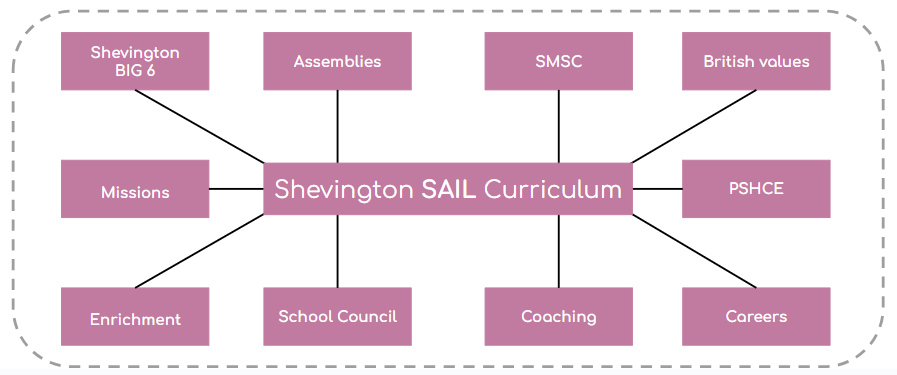SAIL Curriculum
The SAIL Curriculum at Shevington High School
The SAIL curriculum at Shevington High School is a dedicated programme focused on personal development beyond the classroom. It provides opportunities, challenges, and encouragement to help students grow in confidence, resilience, and emotional intelligence, equipping them for life and success beyond school.
Key Features of the SAIL Curriculum:
- Personal Development Focus:
SAIL builds essential life skills such as decision-making, resilience, emotional intelligence, and self-esteem, while fostering respect for diversity and inclusivity. - Termly Missions:
Each term, students participate in a mission tailored to their year group, aiming to develop their skills and character. From their first presentation in Year 7 to securing their next steps beyond school in Year 11, missions offer unique and challenging experiences. Success depends on students' effort and commitment. - PSHCE Lessons:
Students attend PSHCE (Personal, Social, Health, and Citizenship Education) lessons, which include financial literacy, decision-making, and healthy relationship-building. These lessons support missions and prepare students for real-life challenges. - Weekly Coaching Sessions:
Shevington students benefit from personalised coaching sessions, offering a rare opportunity to reflect on goals and progress. These sessions are supported by logbooks, promoting consistent personal growth. - The Shevington BIG 6:
The BIG 6 values, including resilience and accountability, are integral to the SAIL curriculum, ensuring students develop into responsible and engaged citizens.
Why SAIL Matters
While academic achievement is essential, personal development is equally critical. SAIL empowers students to explore future career opportunities, build independence, and make informed decisions, setting them up for success in life and education.
The SAIL curriculum at Shevington is a cornerstone of the school's commitment to holistic education, where every student is challenged to embrace opportunities, overcome challenges, and realise their potential.






